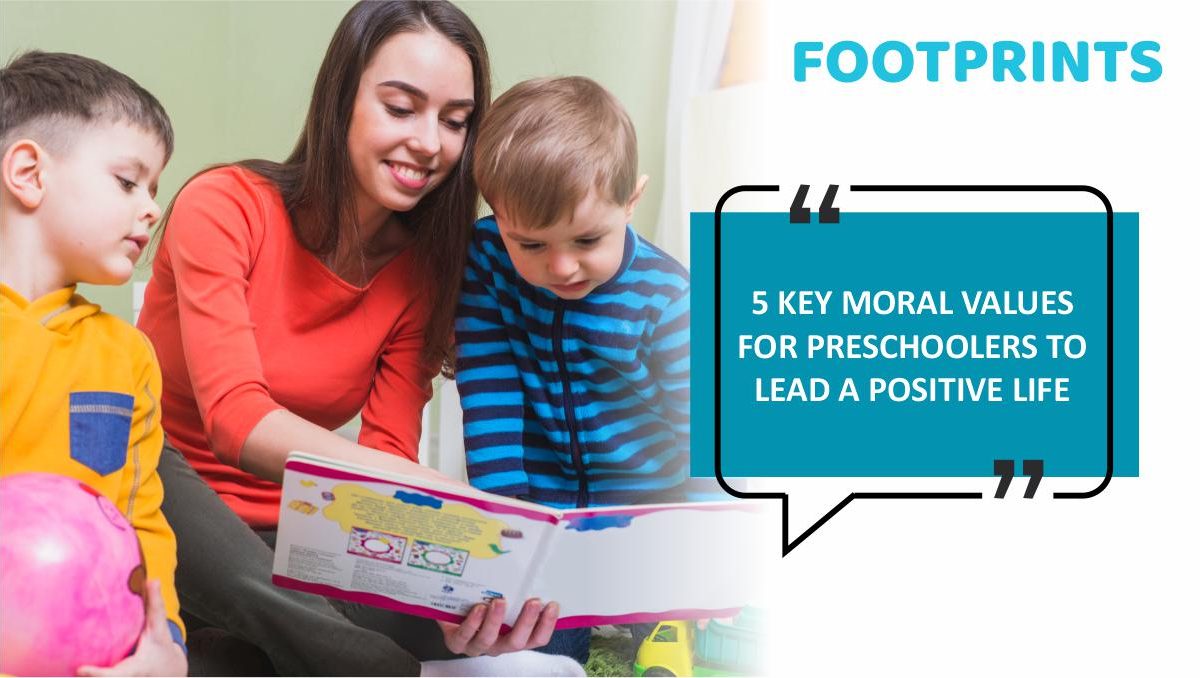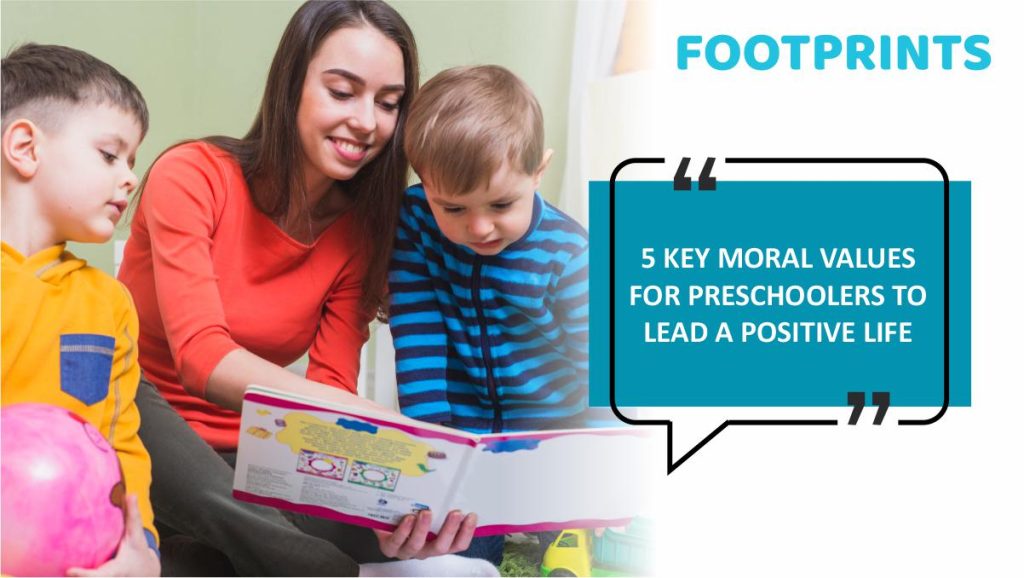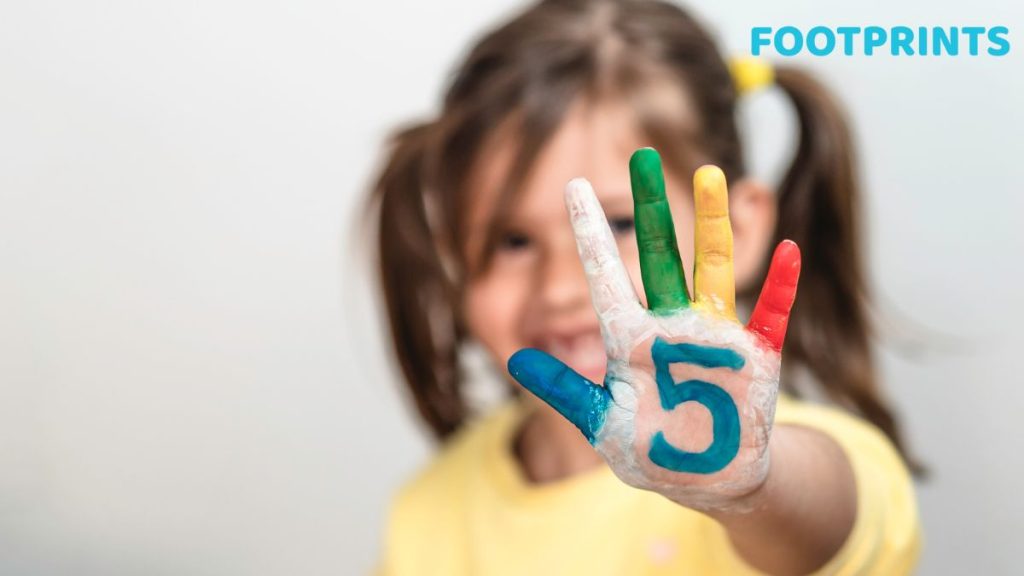

We live in a world where we face ethical dilemmas every other day. The need to instil moral values that can guide our behaviour cannot be overstated. When it comes to instilling moral values, no time is too early. The earlier you start, the better the chances they are inculcated as an intrinsic part of life. They then go on to influence decisions, shape relationships, and, importantly, contribute to the well-being of the self and society at large.
What are moral values?
Before we discuss the key moral values to instil in your preschool child, it will be worth analysing what moral values really are and their importance. Essentially, moral values are principles and standards that help distinguish right from wrong. When these values are taught early, the child grows up with a strong moral compass.
Moral Values, in turn, could take the following forms:
- Personal values that are shaped by upbringing and experiences
- Social values that promote harmony within society
- Cultural values that a group shares
- Universal values that exist across cultures
- Professional values that act as a north star in workplaces
- Environmental values that reflect a commitment to caring for the environment.
5 essential moral values
Here are five essential moral values that help build character and instil positive behaviour in children.

1. Respect
Being respectful towards others is a moral value that children need to learn early on. This is extremely important if we want to build an inclusive society where everyone is valued. Children need to be taught to be respectful of people irrespective of their age, sex, religion, economic status, point of view, and more. This value must transcend people and extend to all creations, big or small. Remember a hymn you may have sung as a child and maybe teaching your children- “All things bright and beautiful; all creatures great and small.” Children need to be taught that all creatures deserve respect.
This value is best taught by example. When children see parents respectful of everyone around them, the message is passed on to them subliminally. A word of caution here: Respect does not mean being blindly subservient to everyone and not able to express one’s point of view.
2. Honesty
Most of us have grown up learning that honesty is the best policy. Yet dishonesty is rampant in the world today. Preschoolers, therefore, do not just need to hear of this as a cliche; they also need to experience honesty around them. Small acts such as handing over things that do not belong to them, speaking the truth, and honestly accepting mistakes are aspects that children need to witness and practice early.
3. Compassion
Children also need to be instilled with a feeling of love and concern for others early. Small aspects, such as teaching children to share their belongings or to wait patiently for their turn, can go a long way in introducing them to a compassionate way of life. As these children grow up, they are far more likely to make a difference in real-world issues, be they hunger or world peace.
4. Persistence
The importance of showing up daily and a strong work ethic cannot be disregarded. At a time when people are increasingly looking for shortcuts to success, children need to be taught the importance of persistence and hard work. They will be able to reach their goals through consistency and a sense of discipline. This value will come in handy in all aspects of their lives, their studies, careers, or more.
5. Gratitude
We live in a world that increasingly teaches us that bigger is better. We are all, therefore, aspiring for more wealth, bigger houses, fancier cars, and more. None of these things lead to happiness, as happiness is an inside job. What this does, however, is that it pushes us into a vicious circle of competition, bitterness, and more. Instead, what we need to teach young children is gratitude. When we are grateful for what we have, our life becomes infinitely better. What is important to remember is that gratitude is like a muscle, the more you flex it, the more it grows. Teaching the attitude of gratitude can take several forms. For instance, get the children to keep a gratitude journal or a gratitude jar. At night, before they sleep, they can record 5 things about the day, big or small, that they are grateful for. Once trained to think like this, they will learn to look at the positives of life instead of lacking.
Ways to inculcate moral values
Some of the ways to help students inculcate these moral values include:
Leading by example
This is indeed the most effective way to teach important lessons to children. Both parents and students need to act as role models. When students see adults around them living with these moral values, they will embrace them as a part of life
Coachable moments
Reading a book or watching a movie together can often offer coachable moments. You can discuss the importance of moral values without sounding preachy. How a particular character made or did not make the correct decision can be a good starting point for the discussion. Role plays, where you enact different situations, can also be a great enabler.

Self-reflection
It may help to earmark a time as a family for self-reflection. This practice allows everyone to become self-aware and learn and improve. It also builds responsibility and aids decision-making.
In teaching moral values, parents also need to be aware of challenges such as resistance, desire for instant gratification, peer pressure, and more that are bound to creep in. However, with consistency, these will soon become an intrinsic part of children’s lives and stay with them throughout life.
To Sum Up
Moral values are essential to building a just society and for individual fulfilment. When these values are inculcated early, they become a part of the child’s character and, in turn, offer the child an inbuilt compass that does not allow him or her to stray.
At Footprints, a leading play school and daycare that has emerged as an effective parenting partner, we focus on children’s holistic development. Given the importance of moral values in students’ lives, the scientifically developed HighScope Curriculum places great emphasis on moral development, where children develop an internal sense of right and wrong. Such children, therefore, grow up to be happier and more fulfilled.
Usman is a seasoned Performance Marketing Professional and content writer with over 8 years of experience in the education industry. With a passion for driving results and creating compelling narratives, Usman specializes in crafting data-driven marketing strategies and insightful content that resonates with educational institutions and their audiences. His expertise in performance marketing, combined with his in-depth understanding of the education sector, allows him to bridge the gap between marketing initiatives and student engagement effectively. Whether through targeted campaigns or educational content, Usman helps brands enhance their online presence and achieve measurable growth.

